Zinc and Immunity: Role in Kids and Adults

In a world teeming with microscopic invaders, a robust immune system is your body’s frontline defense. While many nutrients play vital roles in maintaining this shield, zinc stands out as an essential trace element—particularly crucial for both children and adults. This powerhouse mineral is not just a minor player; it’s deeply involved in numerous immune processes, from the development of immune cells to the overall function of the immune system. Understanding zinc’s profound impact on immunity can empower individuals to take proactive steps toward better health. This article delves into the fascinating science behind zinc’s role in bolstering immunity at every stage of life, addressing common questions and highlighting its significance for overall well-being.
Why Is Zinc So Important for a Strong Immune System?
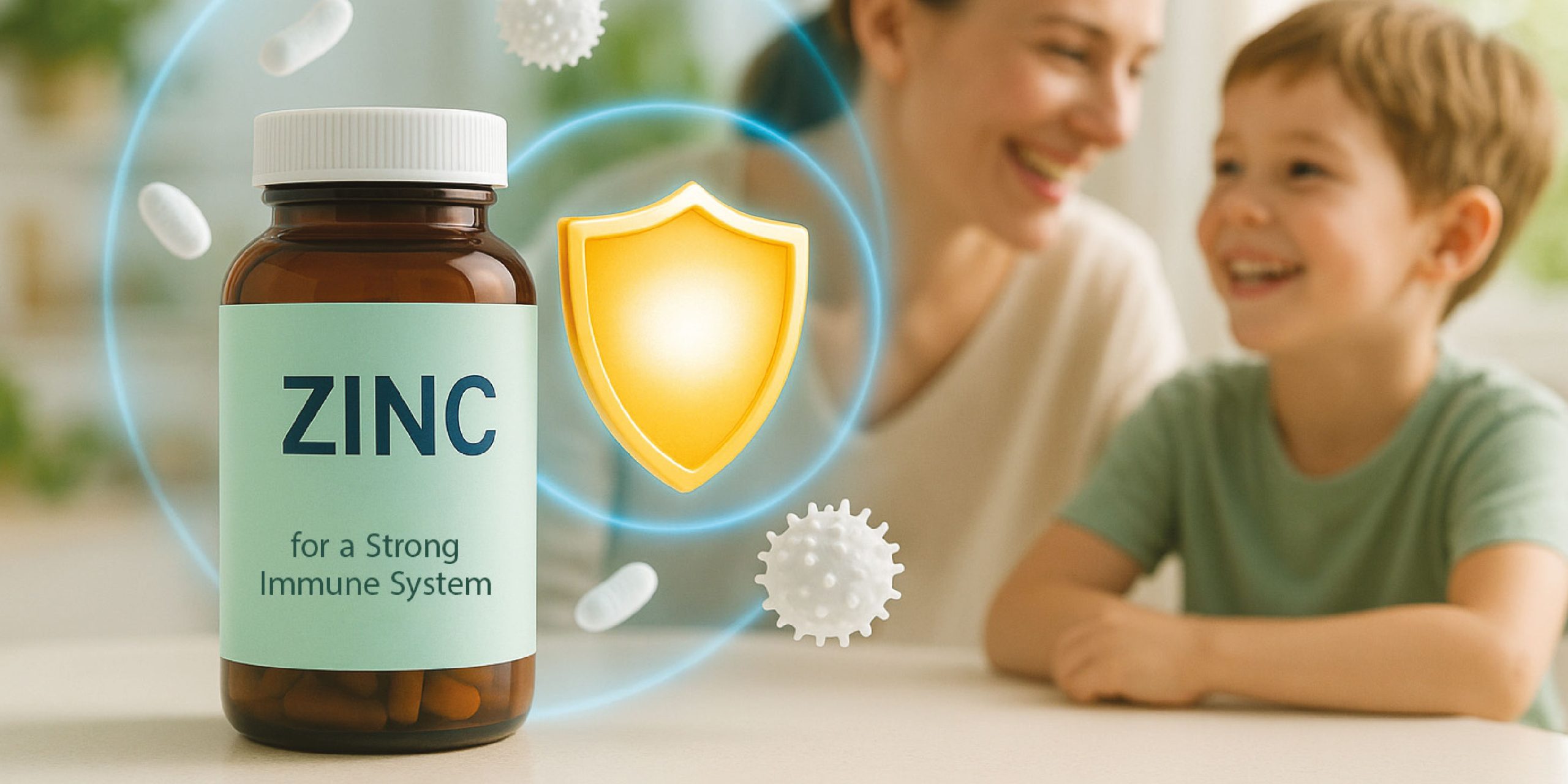
Zinc is a vital micronutrient that plays a fundamental role in numerous biological processes, including immune function. At a cellular level, zinc is a cofactor for over 300 enzymes involved in regulating enzymatic activity, with a crucial role in physiological processes such as immune responses.
It is essential for the development and differentiation of various immune cells, including lymphocytes (T cells and B cells), natural killer (NK) cells, and neutrophils. Zinc also plays a crucial role in the production of cytokines—signaling molecules that coordinate immune responses.
Furthermore, it is involved in maintaining the integrity of physical barriers like the skin and mucous membranes, which are the first line of defense against pathogens.
Scientific studies have demonstrated that zinc deficiency impairs immune function, leading to increased susceptibility to infections.
Zinc’s Crucial Role in Children’s Developing Immunity

Children are particularly vulnerable to infections as their immune systems are still developing. Zinc is indispensable for the proper growth and function of their immune cells. The role of zinc in protecting and supporting the body’s response to infections is well documented, especially in children.
Zinc supplementation in children can reduce the incidence and severity of common childhood conditions like diarrhea and respiratory tract infections. Zinc availability plays a crucial role in the maturation and differentiation of T cells in the thymus. It has been well established that zinc deficiency impairs the activity of thymulin—a key factor essential for T cell development.
Ensuring sufficient zinc levels in children is therefore paramount for healthy growth and protection against illness.
What Are the signs of Zinc Deficiency and How does It Affect Immunity?
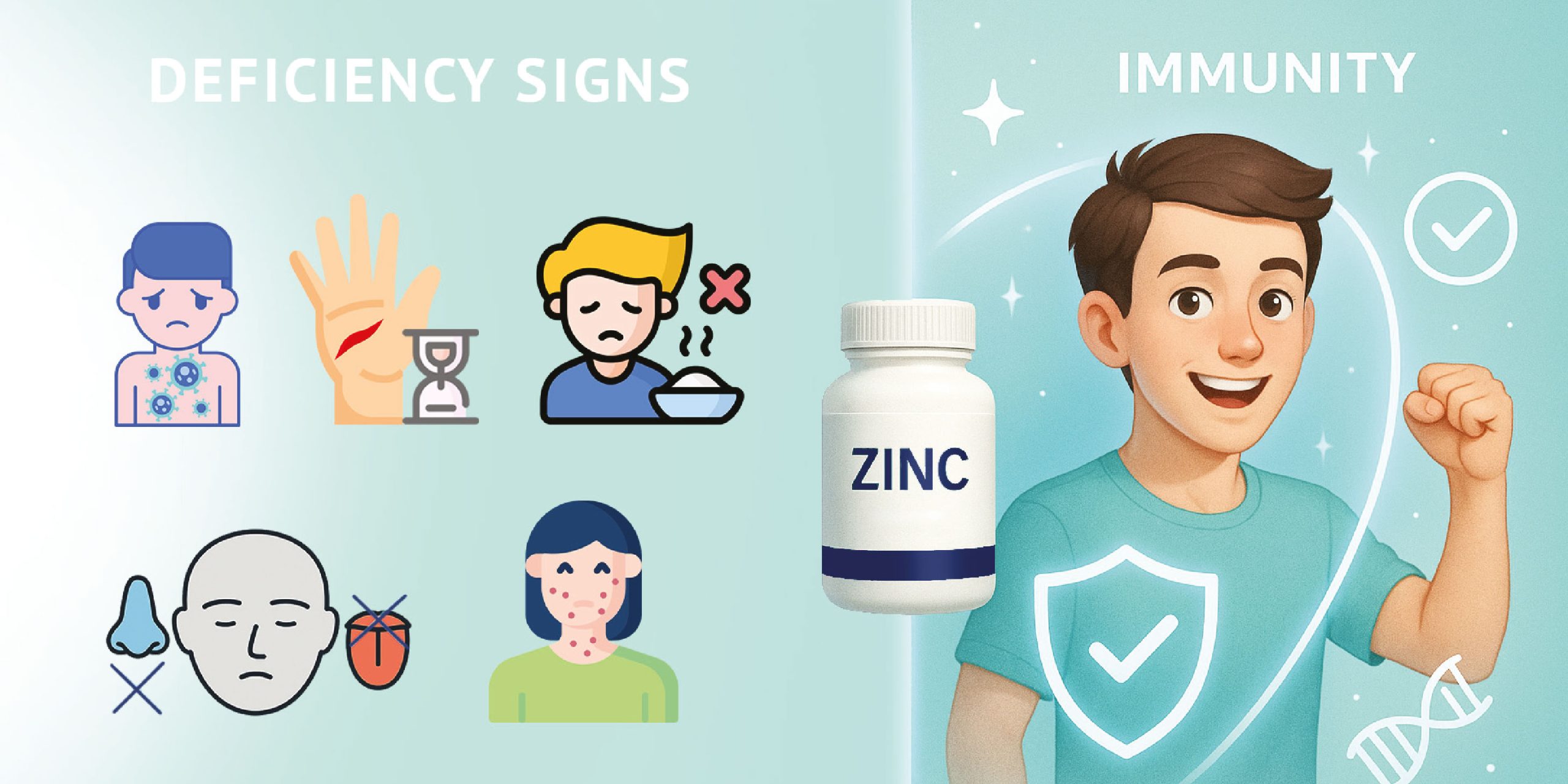
Zinc deficiency can manifest in various ways, and its impact on immunity can be significant.
Common signs of zinc deficiency include:
- Frequent infections
- Impaired wound healing
- Loss of appetite
- Taste and smell disturbances
- Skin problems
At a cellular level, zinc deficiency leads to decrease in the number of immune cells, including reduced activity of T cells, B cells, and NK cells.
How Much Zinc Do Kids and Adults Need for Optimal Immunity?
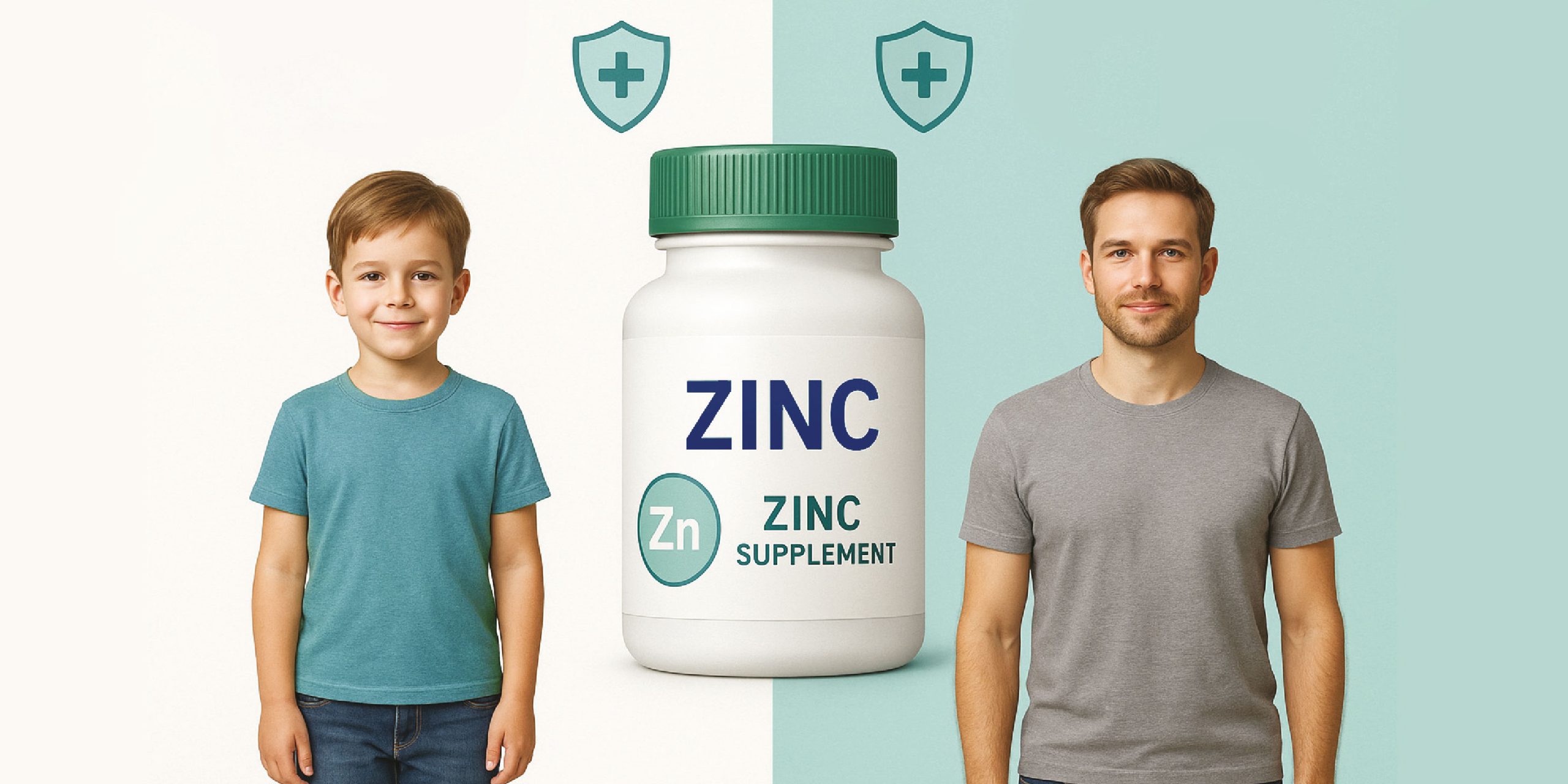
The recommended daily intake of zinc varies based on age, sex, and physiological status (e.g., pregnancy, lactation). For infants and young children, the requirements are lower; as children grow, their zinc needs increase to support bodily demands and overall growth. Adults also have specific daily requirements, with slight differences between men and women.
Clinicians consider factors like dietary habits and the presence of certain health conditions when assessing a patient’s zinc status. Consulting dietary guidelines or healthcare professionals can help determine the appropriate daily zinc intake for optimal immune function at different life stages.
Top Food Sources of Zinc to Boost Your Natural Defenses
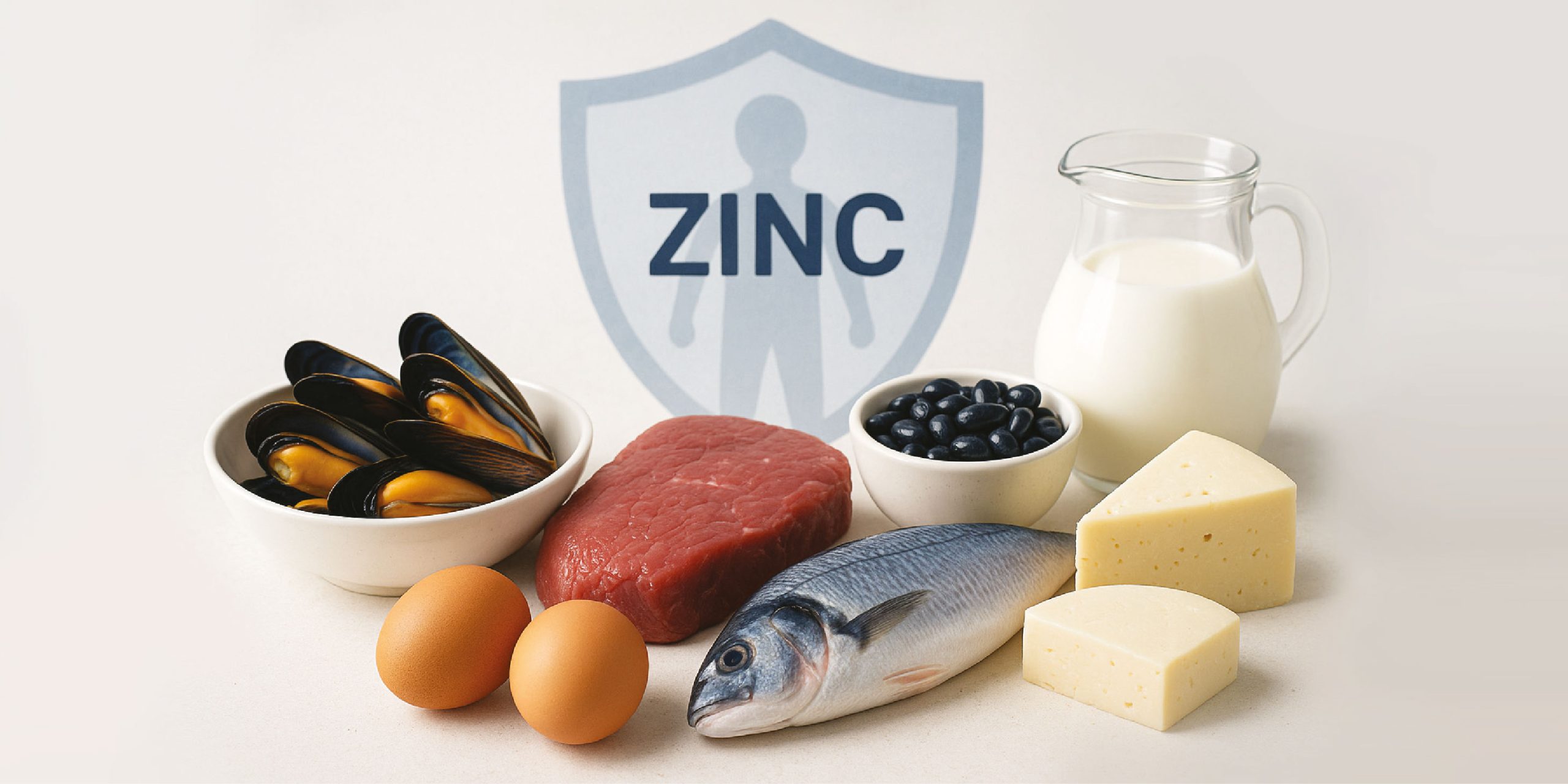
Fortunately, zinc is found in a variety of foods, making it possible to obtain adequate amounts through a balanced diet. The richest dietary sources of zinc are meat, fish, and seafood. Among these, oysters provide the highest amount of zinc per serving. However, in the United States, beef accounts for approximately 20% of zinc intake from food, primarily due to its widespread consumption.
Eggs and dairy products also contribute to zinc intake, though in smaller amounts.
Plant-based sources such as beans, nuts, and whole grains contain zinc as well, but the body absorbs it less efficiently from these foods. This is because they contain phytates, which can bind minerals like zinc in the intestine, forming insoluble complexes that inhibit absorption.
Fruits and vegetables, by contrast, contain only minimal amounts of zinc.
Are There Any Risks Associated with Too Much Zinc Intake?
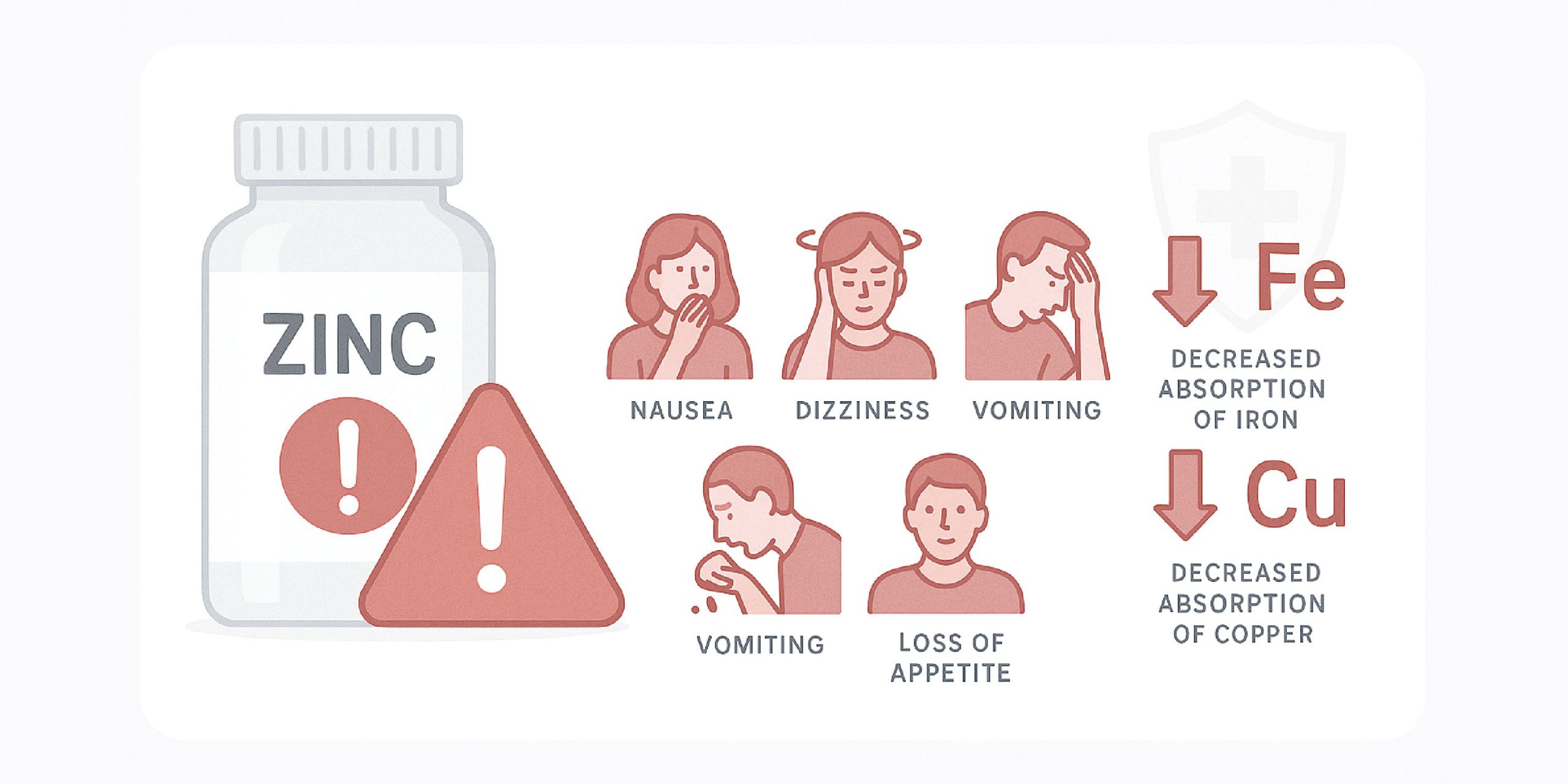
While zinc is essential, consuming excessive amounts can lead to adverse health effects. High zinc intake can cause nausea, dizziness, headaches, gastric distress, vomiting, and loss of appetite. It can also interfere with the absorption of other important minerals, such as copper and iron, potentially leading to deficiencies in these nutrients.
Chronic excessive zinc intake may even suppress immune function and lower levels of high-density lipoprotein (HDL) cholesterol.
Therefore, it’s important to adhere to the recommended upper limits for zinc intake and to exercise caution with high-dose supplements.
Conclusion
Zinc is an indispensable nutrient that plays a multifaceted and critical role in maintaining a robust immune system throughout life. From supporting the development of immune cells in children to bolstering defense mechanisms against infections in adults, zinc’s influence on immunity is profound.
Recognizing the signs of deficiency, understanding dietary sources, and using supplementation judiciously under professional guidance are key to harnessing the power of zinc for optimal health. By prioritizing adequate zinc intake, individuals can empower their body’s natural defenses and contribute to overall well-being.
Your Immunity Deserves the Best.
Browse our range of pharmacist-approved zinc supplements for children and adults. Take the first step toward better health.
References
- Wessels I, Maywald M, Rink L. Zinc as a gatekeeper of immune function. Nutrients. 2017 Dec;9(12):1286.
- https://medlineplus.gov/ency/article/002416.htm
- Cheng Y, Chen H. Aberrance of zinc metalloenzymes-induced human diseases and its potential mechanisms. Nutrients. 2021 Dec 13;13(12):4456.
- https://www.news-medical.net/health/The-Role-of-Zinc-in-Immune-Health-and-Wound-Healing.aspx
- Name JJ, Souza AC, Vasconcelos AR, Prado PS, Pereira CP. Zinc, vitamin D and vitamin C: perspectives for COVID-19 with a focus on physical tissue barrier integrity. Frontiers in nutrition. 2020 Dec 7;7:606398.
- Gammoh NZ, Rink L. Zinc in infection and inflammation. Nutrients. 2017 Jun 17;9(6):624.
- https://www.unicef.org/uzbekistan/en/stories/how-dangerous-measles
- Wessels I, Maywald M, Rink L. Zinc as a gatekeeper of immune function. Nutrients. 2017 Dec;9(12):1286.
- Abd El-Ghaffar YS, Shouman AE, Hakim SA, El Gendy YG, Wahdan MM. Effect of zinc supplementation in children less than 5 years on diarrhea attacks: a randomized controlled trial. Global Pediatric Health. 2022 Jun;9:2333794X221099266.
- Basnet S, Mathisen M, Strand TA. Oral zinc and common childhood infections—An update. Journal of Trace Elements in Medicine and Biology. 2015 Jul 1;31:163-6.
- https://www.healthdirect.gov.au/zinc-deficiency
- https://my.clevelandclinic.org/health/diseases/zinc-deficiency
- Shankar AH, Prasad AS. Zinc and immune function: the biological basis of altered resistance to infection. The American journal of clinical nutrition. 1998 Aug 1;68(2):447S-63S.
- https://ods.od.nih.gov/factsheets/Zinc-HealthProfessional/
- Kondaiah P, Yaduvanshi PS, Sharp PA, Pullakhandam R. Iron and zinc homeostasis and interactions: does enteric zinc excretion cross-talk with intestinal iron absorption?. Nutrients. 2019 Aug 13;11(8):1885.

